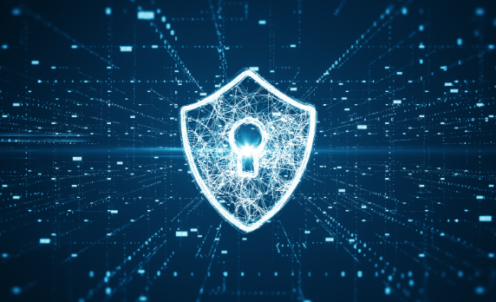
Sorry, your browser is not compatible with this application. Please use the latest version of Google Chrome, Mozilla Firefox, Microsoft Edge or Safari.
CMMC Gets Real: How Defense Contractors Are Meeting Enforceable Standards
The Cybersecurity Maturity Model Certification (CMMC), went fully into effect in November of 2025. While this activation is new, the standards are not. CMMC is based on the National Institute of Standards and Technology's (NIST) SP 800-171 standard, which has been in place for eight years. This standard ensures that companies contracting with the Department…
Recent Posts
Top 10 GovExperience and CX Events for Government in 2026
As Government agencies increasingly prioritize citizen-centric service delivery, customer experience (CX) has emerged as a critical mission imperative. Modern constituents expect seamless, responsive interactions across all touchpoints, from digital services to contact centers, mirroring their experiences in the Private Sector. Carahsoft Technology Corp., The Trusted Government IT Solutions Provider®, stands at the forefront of this…
Learn more
Reimagining Government Records Management for a Digital Era
Government agencies are managing more information than ever before—while facing increased expectations for transparency, compliance, and responsiveness. The trend report Reimagining Government Records in the Age of AI explores how federal, state, local, and defense organizations are modernizing records management programs to address growing backlogs, fragmented systems, and evolving governance requirements. The Records Management Challenge…
Learn more
GovRAMP: A Secure Cloud Framework for State and Local Government
State and local governments are under increasing pressure to modernize digital services while navigating tight budgets, workforce constraints, and rising cybersecurity risks. The GovRAMP trend report, Navigating Challenges: How GovRAMP Empowers State and Local Governments, examines how the Government Risk and Authorization Management Program is helping agencies adopt cloud technologies more securely, efficiently, and with…
Learn more
Monitoring the Evolution of SBOMs in Government
Software Bills of Materials (SBOMs) are becoming a cornerstone for improving software supply-chain transparency and resilience. An SBOM is a detailed inventory of the components that make up a piece of software. It is essentially a software ingredient list that enables agencies and organizations to see exactly what’s inside the applications they use. This visibility…
Learn more
From LTE to 5G: The Future of Government Connectivity
As government agencies face increasing demands for speed, security, and mobility, 5G is emerging as a mission-critical infrastructure layer for defense, emergency response, and smart operations. The new trend report, From LTE to 5G: The Future of Government Connectivity, outlines how federal, state, and local agencies are leveraging 5G to power the next generation of…
Learn more
Technology Trends to Watch in 2026
The pace of technology is accelerating on what feels like a daily basis. Innovations that once felt experimental are now pushing into the mainstream, reshaping how organizations operate, make decisions, and deliver services. We wanted to focus on a few areas that we think are poised to make a big impact in 2026. Agentic AI …
Learn more
Transforming Work with AI: The Critical Role of Human Capital
As AI reshapes the modern workplace, human capital (HC) professionals are stepping into a dual role—as adopters and enablers of transformation. The new report, Transforming Work: A Human Capital Approach to AI Adoption, explores how HC leaders are redefining work, talent, and training through responsible AI integration. AI in Talent Acquisition Recruiting teams are leading…
Learn more
Balancing AI Policy and Innovation
As federal agencies have been experimenting with and implementing artificial intelligence (AI) solutions, they have been working to deliver on the requirements outlined in recent Executive Orders to ensure that the solutions meet standards for data security, governance, and proper risk management. These requirements were crafted to balance needed governance with the demand for innovation…
Learn more
DevSecOps for Government: Secure Innovation at Scale
Government agencies are modernizing how they build, test, and deploy software—with DevSecOps at the center of that transformation. The trend report DevSecOps for the Future of Government IT explores how public sector teams are embedding security into every stage of the development lifecycle while improving agility, compliance, and collaboration. PTaaS: From Annual Tests to Real-Time…
Learn more
Subscribe

Sign up to receive the GovWhitePapers newsletter, featuring our freshest content relevant to discussions happening in the government community.
Sign Up









